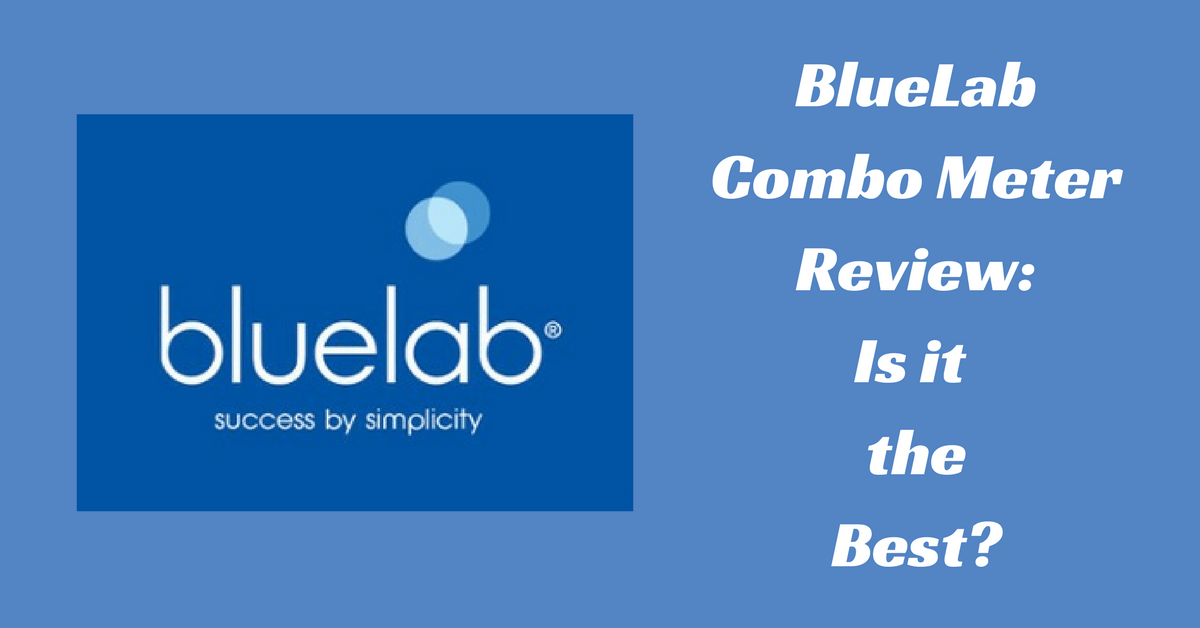There are alot of growers out there that use nothing but the Bluelab combo meter.
This is what most seasoned cannabis growers recommend.
With all the meters on the market ranging from pens to combo meters that are mobile or stationary.
For some reason this meter stands out.
In this review we will go over the Pros and Cons, all of the cool features this meter has and also my personal experience on why I began using the bluelab meter.
This is a great combo meter but it does have some faults.
Let’s check out,
Who should use the BlueLab Combo Meter?
The blue lab combo meter is for serious growers who care about how their marijuana plants and want them to be healthy.
Or if you’re just starting out it’s a good investment that you will have for a very long time.
A must if you are growing it for medicinal needs.
For reliability, because if your plants die or are not that healthy, then it will reflect in your medicine.
If you are just a casual grower or on a tight budget, this might not be what you need maybe a less expensive meter would be good as well.
Blue lab also make pen meters for the main readings PH levels, and connectivity (EC).
Or you can also find some reasonably priced digital ph pens or digital EC pen.
Bluelab Combo Meter Review

The blue lab combo meter is the best of the best when it comes to combo meters ( or so that is what is being claimed all over by growers).
It is one of the most recommended meters for giving precise results every time.
Designed for aquaponics, aquaculture, floriculture, hydroponics and greenhouse growing.
Blue Lab has found their place in the marijuana growing community and is here to stay.
The combo meter is designed to give you the most accurate results for your readings.
It has the versatility to be mobile by being able to checking your reading around your grows and checking your soil’s ph level.
Often referred to as “The Cadillac of Meters”
a quote from BlueLab
Pros:
- Can test 3 different required readings for growing
- Portable can be used anywhere
- Replaceable probes
- Do not have to replace the whole unit when broken
- Extremely accurate
- Easy to read screen
- Excellent customer service
Cons:
- Battery required
- Fragile probes
- Probes need special care
- Regular cleaning and maintanance required
Cool things about the meter:
Replaceable Probes:

What’s great with the combo meter is that the probes are replaceable!
I have struggled in the past with pen meters and found I would spend around $70 on them and they would last around a year or less.
Then I would have to replace them.
The probes with the combo meter have lasted already over three years and are still trucking.
It’s easier to just place the probe into your nutrients and water to get the readings.
Than just sticking a tip of the pen in the top part of your nutrients and water (can you even get a good reading ?)
Portable:
This is a battery operated device, which you can move all over the place.
The meter is great if you have a large grow or even outdoors as it can shine making things a lot easier with your nutrient loads.
It is especially handy when you are needing to check the PH of the soil on individual marijuana plants that may be having issues
Test 3 Key Readings that are Essential
PH , EC , TEMP
Instead of having three different pens you can get either a ph meter, an EC meter or conductivity meter, or a temperature pen or thermometer
the first two are key in getting the right settings needed for your nutrients to keep your plants healthy.
The thermometer is also useful as well because you do not want to water your marijuana with really cold or hot water.
Big readable display:
Easy to read.
Big numbers and letters come out of this meter.
So there is no eye squinting to read the display that’s the size of a quarter and with no second guessing.
Easy calibration
To calibrate the PH it’s simply a one-touch button, and for conductivity (EC) and temperature meters, there is no calibration required!
It’s ready to go. Other meters can be a hassle.
Solid warranty
Blue lab backs up their products with a solid warranty of five years, with six months on the probes.
Their customer support is top notch when you have an issue with the meter.
Accurate :
The accuracy of the Blue Lab combo meter is the best in the industry.
Most meters out there only go to the 0.00 value and blue lab goes further to 0.000.
This is awesome to know the accuracy of your testing.
Technical Specs
If your interested in the technical specs for the blue lab combo meter here it comes with:
The combo meter measures the PH level from 0.0 to 14.0 and also measures its accuracy for the temperature to the 0.1 degree.
The unit can operate in a temperature range from 0 degree Celsius ( 32 Fahrenheit) to fifty-degree Celsius ( 122 Fahrenheit)
The connectivity measures up to 0-9.9 EC and 0-99 for cf

Cleaning and Storage
Blue Lab recommends that you clean your probe every thirty days.
You can use home cleaners with a liquid cream such as Liquid Vim, scrub soft, Jif, cis, viss.
Most important do not use the scented cleaner as the oils will damage the probe face.
Or you can opt to buy a cleaning kit from Blue Lab just to be on the safe side.
Remember to store your PH probe in the storage solution or regular tap water and not reverse osmosis or distilled water.
This is a must. If not it will not work.
As they say at blue lab“if it dries it dies!”
Check out he video below on how easy it is to calibrate and maintenance,
Common problems and troubleshooting
- Fragile ph probe a small crack can affect the reading, just don’t slam it into your nutrient reservoir
- Never use rechargeable batteries, it may affect reading and the battery supply warning
- Issue calibrating, change batteries to a fresh batch and recheck.
My experience
Before I would use cheap pens I would get two for like fifty bucks on eBay or Amazon.
I thought it was getting good readings, but my plants always suffered in their growth.
Thinking it was nutrients or the wrong amount and troubleshooting all the possible deficiencies was maddening.
Then one day the inevitable happened when I was checking my nutrients on my pen meter for PH, it fell into the reservoir.
Oh man.
Was it fate?
My friend suggested the Bluelab combo meter as he had good results from it, and his marijuana plants were always healthier than mine.
Was it a simple PH issue or EC values?
Was my water to cold or warm?
I wasn’t using a thermometer, even though I know it wasn’t temperature cause I used room temperature RO water.
Things started to change in a big way after I started using the combo meter.
Plants perked up and looked way more healthy.
I compared my old leftover EC pen that didn’t fall into the reservoir, and the reading was off.
I was not sure on the PH because it was soaked and useless.
Final Thoughts
The bluelab combo meter is a valuable piece in any growers toolkit and will last for years to come.
The simplicity of use and the accuracy are top notch.
I know I can rely on this combo meter to give me the best readings whenever I feed my plants.
Although you do have to be careful with the probes at least they are replaceable if broken.
Don’t settle for those cheap pens that give you inconsistent readings and need to be replaced every year.
Which meter do you use?
Let me know in the comments your experience with the blue lab meter.
Grow on my friends


The bluelab combo has an optional inline PH reader probe that screws into a line. I use that in my dosatron lines and have a reservoir probe for my tanks. Great product.
Hi Ryan,
Thanks for the info on the optional inline ph probe. Good to know. Yeah the bluelab comobo meter is really great meter.
Hello,
What is the difference between the Bluelab combo meter and the Bluelab combo meter PLUS?
Xavier
The difference is that the blue lab combo plus is meant for grow medium such as soil or coco for ph testing and conductivity. the blue lab combo meter is for liquid.
My understanding is that the plus can be used for both soil/soil less medium as you state as well as for liquid! So plus can do both where the non plus can only do Liquid!